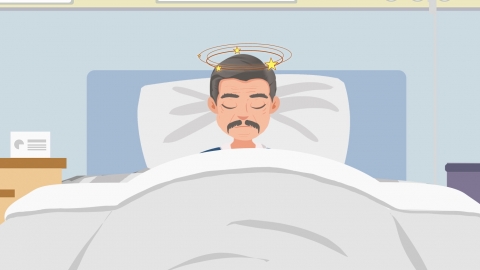What causes an elderly person to suddenly faint?
Generally, sudden fainting in elderly individuals may be caused by excessive fatigue, cold exposure, orthostatic hypotension, hypoglycemia, transient ischemic attack (TIA), or other factors. Symptomatic management may involve general treatment methods and medication. If symptoms are severe, prompt medical attention is recommended, following the guidance of healthcare professionals. Detailed explanations are as follows:

1. Excessive Fatigue
Long-term engagement in heavy physical labor or overexertion may lead to excessive energy consumption, affecting the normal function of the nervous system, which can result in symptoms such as dizziness and muscle soreness. Severe cases may lead to fainting, typically presenting as extreme physical exhaustion, muscle pain, and dizziness. It is recommended to have the elderly person lie down immediately to rest and replenish energy and fluids.
2. Cold Exposure
Exposure to cold environments can cause blood vessels to constrict, affecting blood circulation, particularly in the head. When blood flow is restricted, the brain may experience insufficient blood supply, leading to fainting, which may be accompanied by symptoms such as cold extremities, reddened skin, and shivering. It is advised to move the elderly person to a warm environment immediately and provide warming measures, such as covering with blankets or drinking warm water.
3. Orthostatic Hypotension
Orthostatic hypotension occurs due to weakened vascular regulatory function in older adults. When body position changes, blood may not adjust its flow to the brain in time, causing temporary cerebral ischemia and fainting. Symptoms may also include dizziness, visual darkening, and tinnitus. It is recommended to perform standing adaptation exercises in daily life, such as holding onto objects for support when standing and gradually increasing standing duration.
4. Hypoglycemia
Improper use of insulin or other factors in diabetic patients may lead to low blood sugar levels. Hypoglycemia can result in insufficient energy supply to the brain, causing fainting, which may be accompanied by sweating, trembling, and hunger. It is recommended to use medications such as glucose sodium chloride injection, hydrocortisone tablets, and mannitol injection according to medical advice to alleviate symptoms.
5. Transient Ischemic Attack (TIA)
A transient ischemic attack is caused by temporary neurological deficits due to localized cerebral or retinal ischemia. When the ischemic area affects the cerebral cortex or the reticular formation of the brainstem, fainting may occur. Symptoms typically include numbness or weakness in one limb and are usually short-lived. It is recommended to use medications such as aspirin enteric-coated tablets, Bayer aspirin tablets, and clopidogrel hydrogen sulfate tablets under a doctor's guidance for treatment.
When an elderly person suddenly faints, it is recommended to quickly remove any sharp or hard objects nearby to avoid secondary injuries, and promptly move the person to a safe area.






